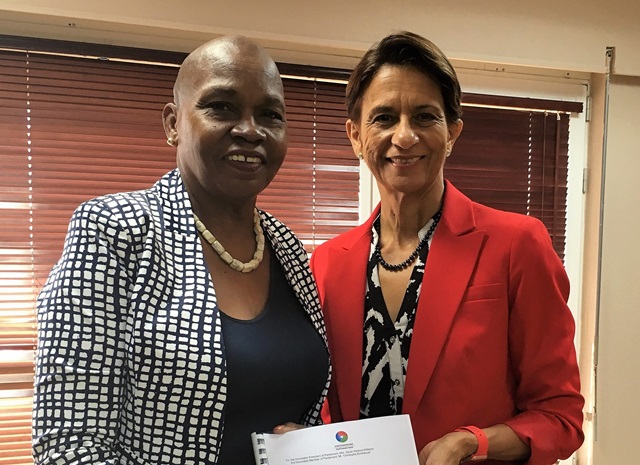
HARBOUR VIEW – On request of Member of Parliament (MP) Christophe Emmanuel, SER researched if a new Development Bank in St. Maarten would benefit the economy, and Small and Medium Sized Enterprises (SMEs) in the current situation of slow economic growth.
The SER advised that a Development Bank is not self-sustainable in this small scale economy, and would not benefit small businesses. A new microcredit organisation would better help micro, small and medium-sized businesses (MSMEs).
The SER agreed with the advice request that especially MSMEs have difficulties given the slow economic growth over the last years, and that they need more help. These difficulties have to do with insufficient access to credit and slow domestic demand on which small businesses often depend.
Commercial banks require that businesses have collateral and paperwork, and small businesses often don’t have that. Furthermore, slow domestic demand keeps small businesses from building up collateral. In other words, MSMEs are stuck in a revenue trap. MSMEs on other Caribbean islands experience similar difficulties.
The SER advised that a microcredit organisation is a viable and efficient alternative for small businesses. Why? Microcredit is not only about credit, but is also about learning, giving guidance and building a relationship with the client.
The SER learned from the Ministry of TEATT that a microcredit organisation called Qredits has been successful elsewhere, and already has plans to expand to all islands of the former Netherlands Antilles. The SER adds that an element of local learning should be included in a future cooperation between St. Maarten and Qredits.
The SER also elaborated on a Development Bank that would serve large businesses with loans. The SER established that the supply of credit by banks to large businesses is not the main problem; it is more about their credit demand. Businesses borrow when they expect this is profitable. A future Development Bank would not address this. In addition, Development Banks are supposed to issue loans to clients who are not served by commercial banks, and these are small businesses, not large businesses.
The small scale of St. Maarten’s economy limits issuing larger loans in an already crowded banking market. This makes covering the operational costs of a Development Bank a challenge. Additionally, the small scale society has interwoven interest and limited human resources with risk management skills. This increases the possibility that a Development Bank could become a risk instead of a tool for sustainable development.
Commercial banks should cater better to small businesses than they currently do. As commercial banks in other countries show, lending to small businesses can be profitable. Within the regulatory framework, commercial banks are free to conduct their business as they choose, but as long as they don’t adapt their lending processes and also borrow more to small businesses, these businesses will not fully develop.
The SER’s full argument is supported by data on the SER website www.sersxm.org. The advice can be downloaded.
The SER advice has been made public via National Gazette of January 20, 2017. The full advice can be downloaded from the SER website www.sersxm.org.




























